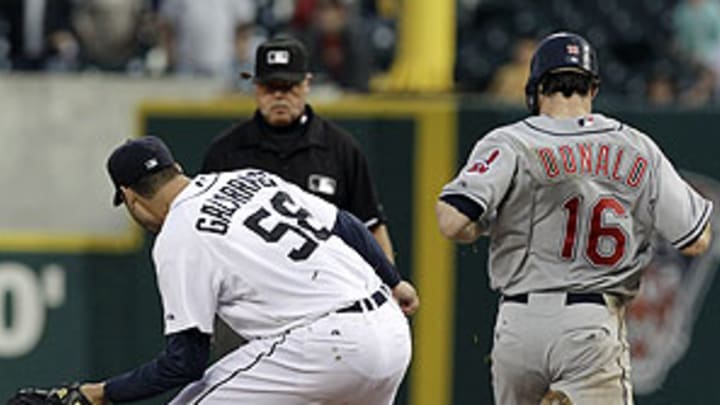For good of the game, Selig needs to reverse ump's blown call

There are no do-overs in sports. Well, except in tennis, when they are called lets.
When it comes to steroids in baseball, people often ask me, look, we know these guys cheated, why can't their records be eliminated from the rule books? And the answer is, yeah they cheated, and yeah we know it and yeah, some of them have even admitted it, but you can't unravel history. If you remove a Mark McGwire steroided home run, then you have to change the pitcher's ERA and the score of the game, and on and on and on back to Abner Doubleday inventing the game in Cooperstown -- and there goes the Hall of Fame. You can't remove Mark McGwire's home runs anymore than you can remove Mark McGwire. He happened.
Except . . . except: in baseball, like life, there is always the one exception. And here we have it. Yesterday, Armando Galarraga, a pitcher for the Detroit Tigers, retired the first 26 batters. He retired the 27th, too, but the umpire botched the call at first base and called the runner safe. So Galarraga lost his perfect game because of a brutal injustice.
(Then, just for the record, he got the next guy out, too. Game over . . . again.)
Now, the replay showed conclusively that Galarraga got the 27th batter out. Nobody in the world disputes that, including the distraught umpire, Jim Joyce, once he saw the replay.
Baseball uses replays only in very limited circumstances, because it is stupid. But that's another issue. The point is, we have replays even if baseball wants to play ostrich, and they prove conclusively: Galarraga got the 27th guy out at first base. The game was over. He had a perfect game.
Just as simple is what Commissioner Bud Selig should do: employ that fiat that comes with his position -- "for the good of the game" -- overrule the umpire, and give Galarraga what we all already know he has: a perfect game.
This is the one extraordinary case in all baseball history. If Selig simply says the game ends with the 27th batter out at first base -- which he was -- nothing else is affected. If it had been the 25th batter or the 26th, no, you couldn't do it. If there was any doubt at all about the call at first base, no, you couldn't do it. If anybody -- the umpire, the batter, Ebeneezer Scrooge -- if anybody in the world disputed it, no, you couldn't do it.
But there is no problem. Giving Galarraga his perfect game is the right thing to do, and it has no adverse affect, nor any affect on history. It's called a gimme, Mr. Commissioner.
There are even analogies. In simple individual sports, like track, when it has been determined, after the fact, that the winner was on drugs, he has simply been lifted out of the race. Justice was done.
Commissioner Selig can give us justice here. He can make everybody happy and hurt no one. For the good of the game. For the good of justice.
Wouldn't that be nice?
